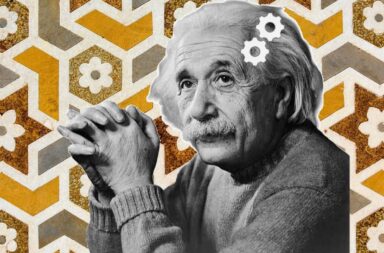For some people with autism, trains are everything. Take for example their strict regimes, multitude of designs and sheer awesomeness, it’s hard to imagine a better fit for an autistic interest, right? Yet, for many an autist, this is just the start, as an interest in trains is also incredible for our mental health and can even put us in a priority seat when it comes to our development.
But what is it that loco-motivates an autistic person to become so taken by trains and how can we ensure that, for a person with autism, trains give back just as much in this relationship? Today I will be looking at the logic behind autism, trains and restricted interests to answer these very questions – and, yes, there will be plenty of time to discuss one particular blue engine before we’re done.

Why do Autistic People Love Trains?
Choo-choo-choosing one single reason why autistic people love trains is by no means an easy task as, although many autistic people will form an obsession with trains from a young age, explanations for this interest vary greatly depending on personality and position on the spectrum (not to mention whether they even care about trains in the first place – which many do not).
This means that, for some, our connection with trains will be purely based around gaining technical know-how; as our minds, which crave to know as much as possible about a single topic, obsess over the many sounds, sights and constructs of trains and their engines. However, for others, our interest in trains is less physical and may be more about reclaiming things we lack in daily life, like routine and regularity.
Nevertheless, while certainty forms the backbone of many an autistic train obsession, in my experience, this was never the case. Instead, when I was younger and being taken/demanding to go to Stockport train station every night, I was fixated on the rhythm that trains presented as they constantly came and left the station. Furthermore and, contrary to belief, I especially loved the high pitch screech of train brakes as they would flood my senses over an evening ( and I know that I am not alone in this regard).
As such, for those who similarly like trains in this way, our interest is more about distracting our constantly busy/overloaded minds with stimuli and, if I had to draw a comparison, it would be like those who are calmed by watching and listening to thunderstorms.
But, what about those who feel pure bliss and excitement at seeing trains? Surely this isn’t about technical know-how or finding inner peace? Well, for those of us who simply feel joy in the presence of trains, this can usually be pinned down to one train in particular: Thomas the Tank Engine.

[A photo taken by this train-loving autist at London Bridge]
Why Do SO Many Autistic People Love Thomas the Tank Engine?
Did you know that every 2 seconds a Thomas the Tank Engine toy is sold somewhere around the world? It’s true and I would be willing to wager that, 9 times out of 10, these Thomas toys are going to someone on the spectrum – if not more. This is because, when it comes to Thomas the Tank Engine fandoms, no community has a stronger affinity for all things on Sodor’s track as those of us on the spectrum.
Surprisingly, this isn’t just an observational claim either, as both a 2002 and 2007 study into autistic people and our affinity for the Thomas series have demonstrated that the reason autism and Thomas are a better match than even Annie and Claribel is because the show plays into many elements autistic people cherish, like predictability, easy differentiation and well-regulated senses.
Evidence of this can be seen in how:
- All the characters can be easily distinguished by their colour
- An episode’s narrator will often explain a plot before it happens
- Backgrounds are often still and unmoving (and so less distracting)
- Characters’ expressions are clear and will often be commented on e.g. ‘Thomas was happy’, ‘Percy was confused’ ‘or ‘Gordon was feeling pompous (as per usual)’
That’s not to say that autistic people can’t just like Thomas the Tank Engine because Thomas is great though – after all, there’s a reason why the show is broadcast in over 121 countries and that’s not because they ran out of British speaking autists. Instead, it shows just how much autistic people can gain from watching Thomas the Tank Engine – which probably explains why we are more vocal about it and why, on average, our interest will last 2 years longer than our peers.

What can Autistic People Learn From an Interest in Thomas and Trains?
Besides sensory stimulation and pure unadulterated fun, autistic people will also learn a lot from an interest in trains. So much so, that many therapists are currently incorporating train play into their regular exercises – something which, although lacking scientific backing, is no doubt a more enjoyable experience for the autistic person involved (and will hopefully make the years of having the Thomas theme tune stuck in your head worth it).
A few examples of this include using a collaborative train track building exercise, a la Lego therapy, to develop social skills (click here to read more about that) and using books with trains featured to improve abstract thinking skills; by closing books mid-way through chapters and asking an autistic person to use inference to work out what will happen next.
Furthermore, many train-based autism educational tools have been built from the ground up in recent years, such as the aptly titled ‘Emotion Game’ from the non-profit charity, Autism Spectrum Australia – wherein, using the characters from Thomas the Tank Engine, autists have to match the name of a feeling with an expression displayed by the trains.
Perhaps the greatest benefit that we are seeing from autistic people and our love of trains however, is those who are going full steam ahead with language abilities after spending so much time with the interest. This has been reported by parents who have witnessed improved understanding of phrases like ‘apply the brakes’ after prolonged train exposure, as well as those who are actively using reference points to improve communication, such as showing a green light when it’s time to go.
All of this goes to show that, while autistic interests may seem restrictive at times, the possibilities they present are endless (especially if that interest is with trains). So, whether an autistic person grows up to grow apart from this love, or will go on to form one of the older train fanbases, nicknamed the *ahem* Bro-comotives, you should be sure that any autist with a love of trains is most likely on the right track.

Carry on the Conversation:
Why do you think autistic people love trains? Let me know in the comments below. And, if you would like to hear more about autistic interests, why not check out my previous articles including why autistic people love dinosaurs and why autistic people love Lego.
As always, I can also be found on Twitter @AutismRevised and via my email: AutisticandUnapologetic@gmail.com.
If you like what you have seen on the site today, then show your support by liking the Autistic & Unapologetic Facebook page. Also, don’t forget to sign up to the Autistic & Unapologetic newsletter (found on the sidebar on laptops and underneath if you are reading this via mobile) where I share weekly updates as well as a fascinating fact I have found throughout the week.
Thank you for reading and I will see you next week for more thoughts from across the spectrum.


